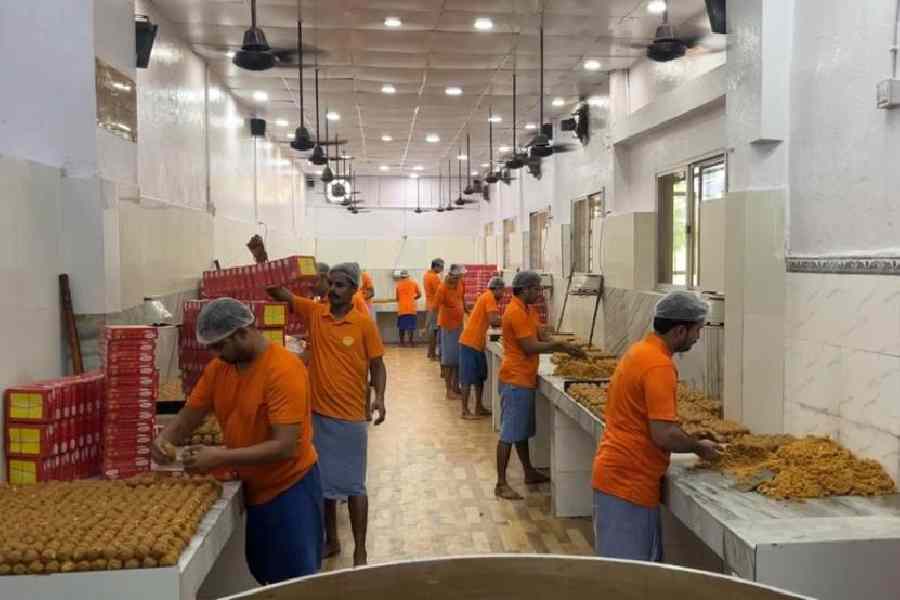The Mahavir Mandir in Patna on Friday recalled how it bargained hard over the price hike of Nandini Ghee sold by the Karnataka Milk Federation (KMF) and kept intact the quality of its laddus made by workers from Tirupati.
Nandini Ghee is the same ghee that the Venkateswara Shrine in Tirupati used to put in their laddu prasadam but stopped using it in 2021 when the KMF hiked its price. The Tirupati shrine then switched to other suppliers. The Tirupati laddus have recently drawn the ire of devotees over the alleged presence of animal fat and fish oil in them.
“It was during the Covid pandemic in 2021 that the KMF decided to increase the price of its Nandini Ghee by around ₹60 per kg. It was a substantial hike. But we knew that pure cow ghee was imperative to maintain the quality, taste and aroma of our ‘Naivaidyam’ (Laddu prasadam). The sharp price rise would also have impacted the pockets of the devotees,” Mahavir Mandir Trust secretary Kishor Kunal, a former IPS officer, told The Telegraph.
The Mahavir Mandir uses around 15,000kg of ghee worth ₹1 crore to prepare and sells around 1.25 lakh kg of laddus per month. Every kg of laddu has roughly 18 per cent ghee in it. The rest is besan (flour of gram pulses), cashew, raisins and cardamom.
The delicacy offered by the devotees to Lord Hanuman as prasadam is prepared by 195 workers, of which 135 are from Andhra Pradesh, Kerala, Tamil Nadu and Karnataka, with experience of making laddus at ‘potu’ or kitchen of the Lord Venkateswara shrine in Tirupati.
As ghee, along with milk, honey, mustard oil and spices, is among the most adulterated food items in the country, Kunal knew that switching over to any other suppliers could be fraught with hazards and decided to negotiate with the KMF.
“Only Nandini and Amul are two respectable brands selling cow ghee. We bargained hard with the KMF officials for around three months. They finally agreed to reduce the price hike to just ₹10 per kg. We accepted it happily and bore the cost without transferring it to the devotees,” said.
“The income from the sale of laddus aids us in our several welfare activities such as running seven hospitals, including the one to treat cancer, providing free food to the patients, and giving discounts on their medical bills. We have earmarked ₹22.5 crore for these during this financial year,” Kunal added.
However, the Mahavir Mandir has also kept a three-tier quality check for the laddus. It procures purity certificate from the KMF with every consignment of ghee, gets the laddus tested at a Delhi lab every three months, and gets the water used in it tested separately for impurities.
“I won’t be the right person to comment on the Tirupati laddu controversy while sitting in Patna, but if the allegations are true then I think the temple trust there stumbled on
impure ghee and also failed to have quality checks,” Kunal said.










